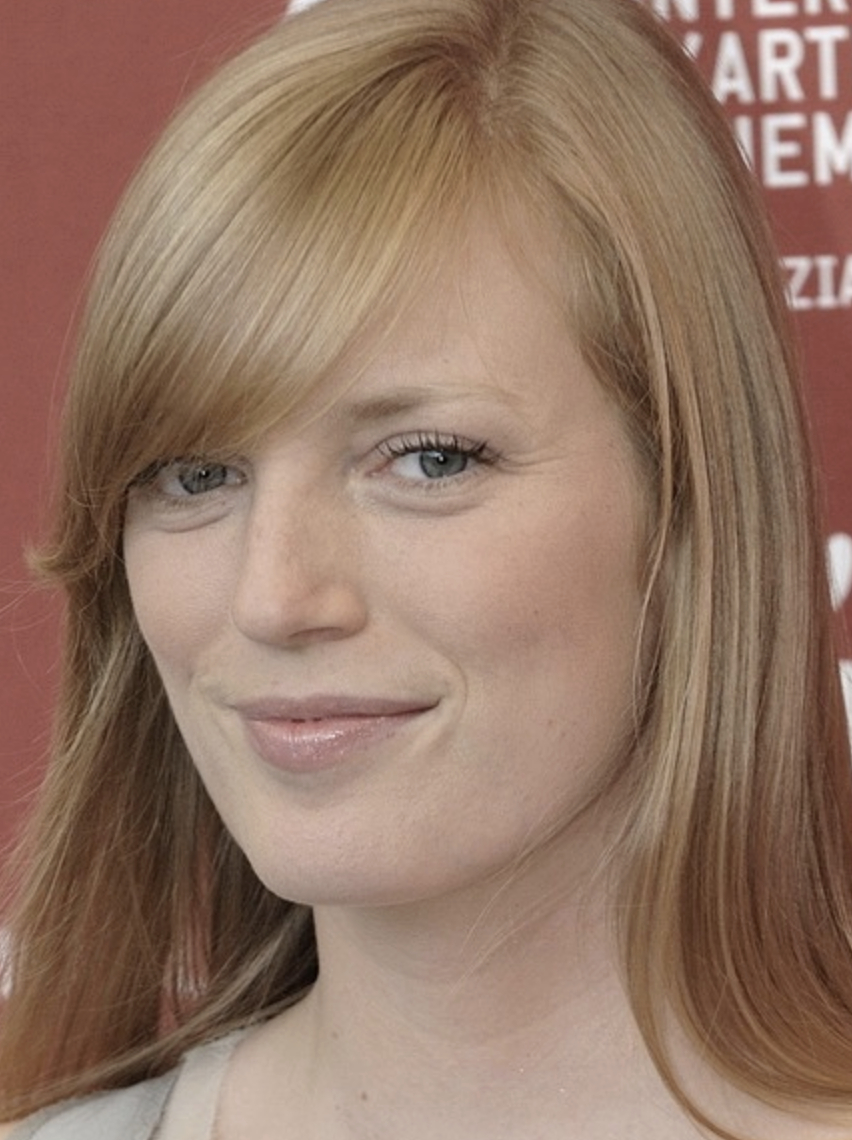On this date in 1979, actress and filmmaker Sarah Ellen Polley was born in Toronto, Canada, to Diane (née MacMillan) and Michael Polley. Her British father and her mother both had acting backgrounds. She would learn as an adult that her biological father was actually film producer Harry Gulkin, with whom her mother had had an affair. (“Stories We Tell” documentary, 2012)
Her mother had died of cancer when Polley was 11. Her home life started a downward spiral, moving from an “incredibly boisterous place, with music playing all the time, and political discussions, and books being discussed, and laughter” to life with a depressed dad in which she was basically left to her own devices and stopped going to school. By age 15, she had lived with her brother’s ex-girlfriend, her first boyfriend and then alone. (The New Yorker, March 13, 2022)
“[The Ontario Coalition Against Poverty] took me in when I was 15, living on my own, with no community. They gave me a political education and a place to belong. It’s why, to this day, I don’t understand why many progressives are so focused on being ‘civil’ and ‘polite’ about the war on the poor,” she later wrote. (Twitter, Nov. 27, 2020)
Asked as an adult how she got into acting, Polley said that as a child of about age 5 or 6, she and her older siblings (she was the youngest) were surrounded by it. “My dad had been an actor — he wasn’t when I was a kid, he was working at an insurance company to support the family — and my mom was a casting director and produced comedy shows.” (Ibid., The New Yorker)
Her first credited movie role was in Disney’s “One Magic Christmas” (1985), starring Harry Dean Stanton and Mary Steenburgen and filmed in Ontario. Her first major role was at age 8 as Ramona Quimby in the Canadian TV series “Ramona” (1988), based on Beverly Cleary’s books. It aired for one season before going to video. Her role in the popular series “Road to Avonlea” (1990-96) made her financially independent and she was dubbed “Canada’s Sweetheart” by some in the press.
“Avonlea” was picked up by the Disney Channel for U.S. distribution. At age 12 she attended an awards ceremony while wearing a peace sign to protest the first Gulf War. Disney executives asked her to remove it but she refused, not a decision the company liked.
“The Sweet Hereafter” (1997), in which she sang three songs and co-wrote the title track, brought her to the attention of more of the public outside Canada. Subsequent roles of note included “Go” (1999), “My Life Without Me” (2003), a remake of “Dawn of the Dead” (2004) and “The Secret Life of Words,” opposite Tim Robbins and Julie Christie, for which she was nominated as Best European Actress by the European Film Academy.
Polley made her feature film directorial debut with “Away From Her” (2006), for which she won the Canadian Screen Award for Best Director and was nominated for the Academy Award for Best Adapted Screenplay. In 2017 she wrote the six-part miniseries “Alias Grace,” based on the 1996 novel of the same name by her longtime friend Margaret Atwood, which Polley had started adapting in 2012.
She was married to film editor David Wharnsby from 2003-08. She married David Sandomierski in 2011. He went on to become a law school professor at Western University in London, Ontario. They have three children together. She suffered a debilitating concussion in 2016 when struck on the head by a fire extinguisher hung over a lost-and-found box at her pool and community center. It would seriously affect her ability to work for over four years.
“Women Talking,” written and directed by Polley, had its world premiere at the Telluride Film Festival in September 2022. It’s based on Miriam Toews’ 2018 novel about several Mennonite women who come to realize they have all been drugged and raped by men in their community.
Polley admires directors Ingmar Bergman and Terrence Malick, saying that Malick’s “The Thin Red Line” (1998) “single-handedly brought me out of a deep depression. It shifted something in me. I’m an atheist, but it was the first time that it gave me faith in other people’s faith.” (Toronto Life magazine, October 2006)
PHOTO: Polley at the 2009 Venice Film Festival; Nicolas Genin photo under CC 2.0.


